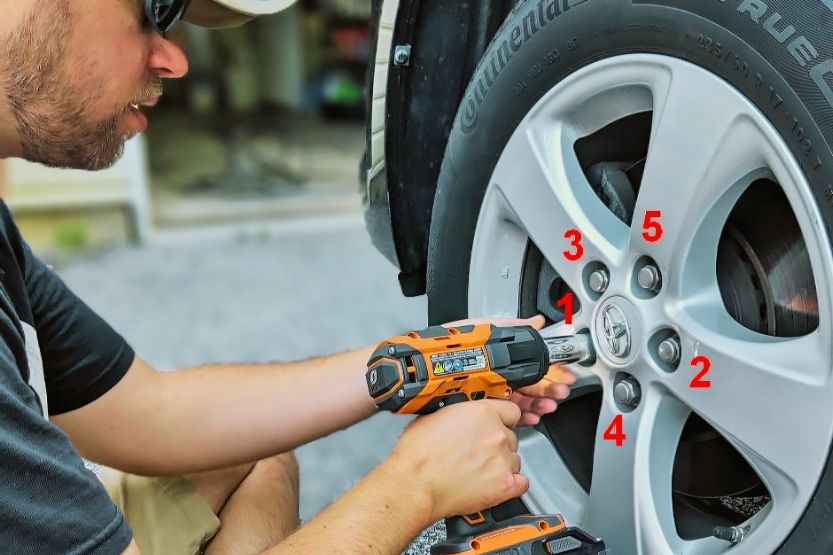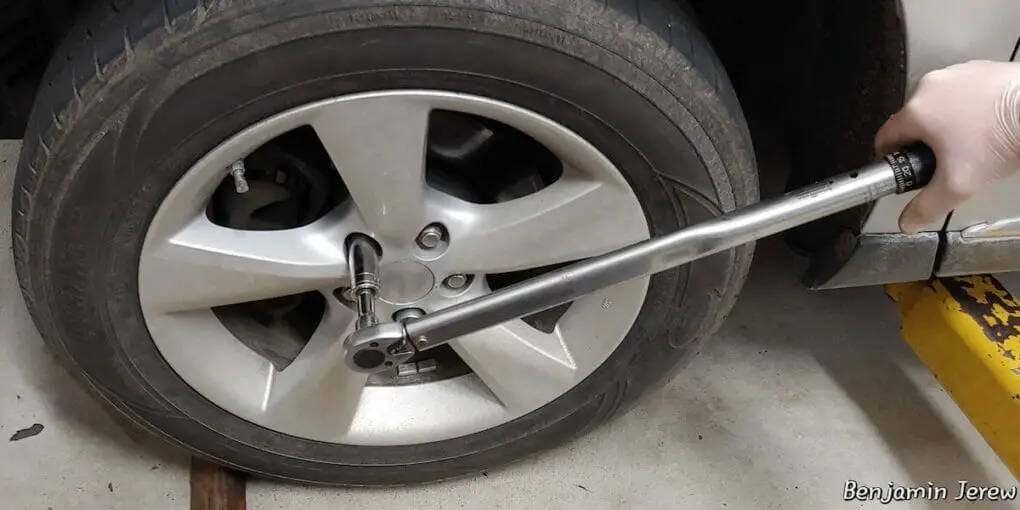How Much to Torque Tires
The torque of a car’s tires is important for many reasons. The correct torque ensures that the wheels are properly secured to the axle, and it also helps to keep the vehicle stable while driving. Over or under torquing your tires can lead to serious problems, so it’s important to know how much to torque them.
How Much to Torque TiresTire torque is one of the most important yet underrated aspects of maintaining a vehicle. Many people neglect to properly torque their tires, which can lead to premature wear and tear, as well as decreased fuel efficiency.
There are a few different factors that go into determining how much torque to apply to your tires. The size and weight of your vehicle, as well as the type of tire you’re using, all play a role in how much torque is necessary.Generally speaking, however, most passenger vehicles will require between 60 and 80 ft-lbs of torque on each tire.
This can be accomplished with a simple hand-held wrench or impact gun.If you’re not sure how much torque to apply to your particular vehicle, it’s always best to consult your owner’s manual or ask a professional mechanic. Over-torquing your tires can cause damage, just like under-torquing them can lead to premature wear and tear.
With a little bit of care and attention, however, you can ensure that your tires are properly torqued and ready for the road ahead!
Wheel Nut Torque Nm
Most drivers are familiar with the importance of keeping their car’s tires properly inflated. But did you know that it’s just as important to keep your wheel nuts tightened to the correct torque? Wheel nut torque is measured in Newton-meters (Nm) and specifies how much force is required to turn a nut one full revolution.
While there are many factors that can affect wheel nut torque, such as weather and driving conditions, most manufacturers recommend between 90 and 120 Nm for passenger cars. That said, always check your car’s owner manual or with a dealer before making any adjustments.Under- or over-tightening your wheel nuts can have serious consequences.
If they’re too loose, your wheels could come off while you’re driving! If they’re too tight, on the other hand, you risk stripping the threads or breaking the studs entirely. So it’s important to get it just right.
Here are a few tips for properly torquing your wheel nuts:1. Use a quality torque wrench that’s been calibrated recently. Cheap wrenches may not be accurate, which could lead to problems down the road.
2. Make sure all of your lug nuts are the same size and grade. Using different types could throw off your torque readings.3. Apply lubricant to the threads before tightening (but not so much that it drips).
This will help prevent galling, which can damage threads and make future removal difficult.

Credit: roadsumo.com
How Much Torque Do I Need to Tighten My Wheels?
Most cars these days have torque specifications for their lug nuts printed on a sticker somewhere within easy view of the driver. If you can’t find it, consult your car’s owner’s manual. The number will be expressed in foot-pounds, and will usually be between 60 and 90.
That said, it is generally advisable to use a torque wrench when tightening lug nuts. A torque wrench allows you to apply a specific amount of force to the nut, ensuring that it is tight enough without being overtightened. This is especially important with aluminum wheels, which can be damaged by overtightening.
If you don’t have a torque wrench available, you can still tighten the lug nuts by hand. Start by screwing them on until they’re snug, then give them an extra quarter turn with your socket wrench. This should get you close to the correct level of torque.
Can You Torque a Tire Too Much?
If you’re talking about torqueing a lug nut, it is possible to torque it too much. This can cause the lug nut to become stripped or break, which can lead to the wheel coming off while driving. It’s important to follow the manufacturer’s recommendations for how much torque to apply.
If you’re talking about inflating a tire, there is such a thing as too much air pressure. This can cause the tire to burst. Again, it’s important to follow the manufacturer’s recommendations for how much air pressure to put in your tires.
FAQ – What Are the Proper Torque Specifications for Wheels?
Conclusion
How Much to Torque Tires?It’s simple: use a torque wrench and follow the vehicle manufacturer’s recommended setting. That said, there are a few things to keep in mind when torquing your tires.
First, make sure the lug nuts or bolts are clean and free of debris. This will help ensure that they’re tightened properly. Second, be sure to use a quality torque wrench.
A cheap one may not give an accurate reading, which could lead to under- or over-tightening the lugs. Finally, always check your work once you’ve finished tightening the lugs. Make sure that they’re all tight and that the wheel is sitting squarely on the ground.


